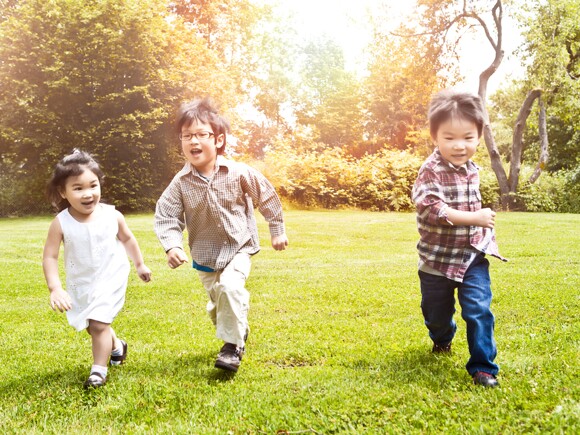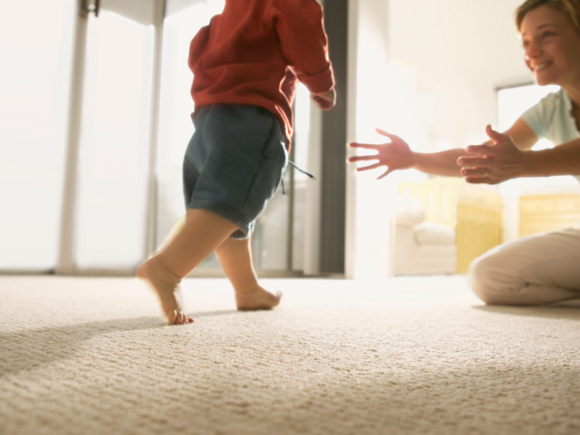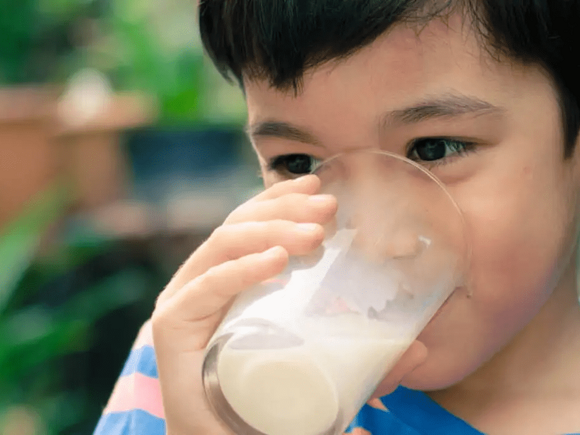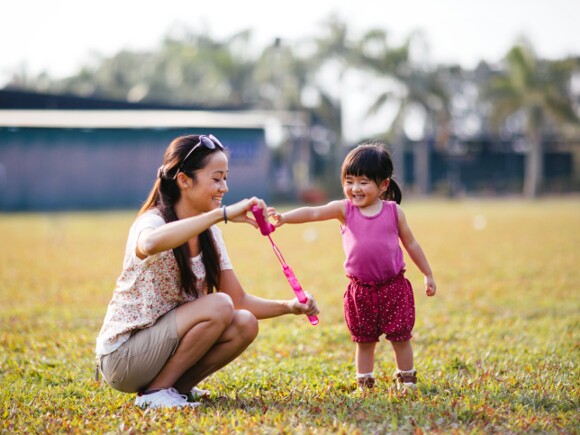We develop our social skills throughout our whole lives. Your baby will develop theirs too! Little by little, your baby first learns how to socialize by interacting with members of your own family. First, through giggles and bonding…eventually, through the small quarrels he will have with his siblings. These are all great experiences that will teach your baby how to get along with the rest of the world.
PRIMARY SOCIALIZATION : Your baby discovers the world… through family!
From birth to six months, your baby’s world revolves around just a few people, you parents. You are the first "social integrators" who teach the little one how to get along with others. Your baby loves this relationship with you --- so full of smiles, cuddles, and funny faces!
Brothers and sisters also play an important role in baby’s "primary socialization". They are some of the first people who help baby learn how to socialize. They give your baby the opportunity to form good relationships with others, aside from you, mommy. Observe how your baby is happy to see his big brother or sister come home at the end of the day --- this may mean that they are developing a closer bond.
Between four and six months, baby starts to smile at new people. Although, of course, he still enjoys babbling at mom and dad the most. But after eight months, everything changes as baby goes into what is known as the "pangingilala" stage. Your little chikiting, who used to smile at anybody, now starts to cry when he sees an unfamiliar face. Poor lolo and lola, so frustrated after traveling a long way just to visit their apo!
SECONDARY SOCIALIZATION : Your baby continues to discover the world… through others
As soon as your baby knows how to walk, his world opens up like magic ! He now knows how to better express himself, make himself understood, and communicate with others. He takes every chance to make friends with children of his age. Pero, easy lang, mommy --- your bunso is not yet ready to share his toys or give up his turn on the swing! Be patient. Your toddler will learn all that as he grows up.
Interacting with other children will help shape your child’s personality. At nursery school or even at the park, your preschooler enjoys watching and imitating other children, who may be his age or older. He now knows how to choose his friends. It is at this stage when his first friendships are formed.
Grandparents play an important role in baby’s secondary socialization. Lolo and lola may have values or points of view different from yours which they may share with your kid. They can also influence your baby’s sense of identity based on the family history and background.
When your baby starts nursery school, he will enter a new phase. Your kid is just one among twenty or more children. He will have to learn to assert himself while getting along with other children.
Your child is shy. Should you worry ?
If your child is afraid of unfamiliar faces, cries when you leave them, refuses to say hello and goodbye, this might mean that your child is just shy. This phase is often temporary but may last longer for some children. It may also just be your child’s natural personality and so should be nothing to worry about.
If your child seems to be consistently uninterested to socialize with almost everyone, best to discuss it na lang with your doctor to rule out any hearing problem or difficulties.
If your child seems to have a shy personality, gently encourage him to go towards others. Enroll him in different activity groups he may be interested in, like sports or crafts, and he will quickly make friends.
If your child tends to be rough with other children in most situations, he is perhaps feeling insecure. Discuss it with your pediatrician to better understand his behavior.





























